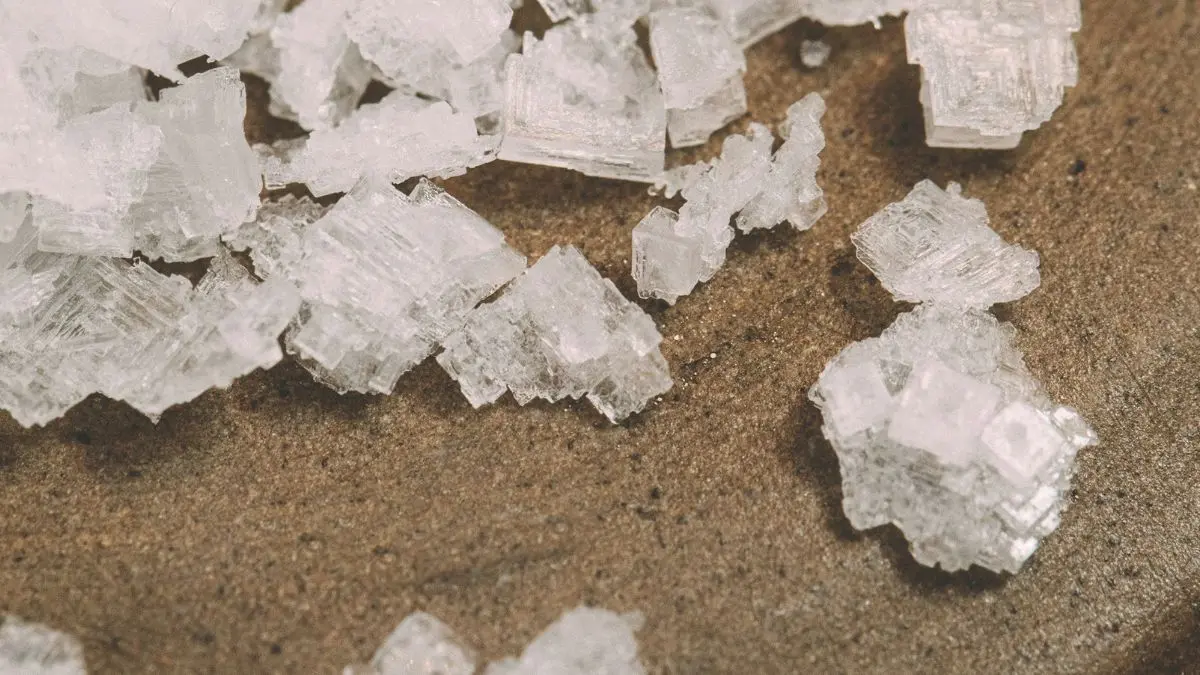23 August 2025
Matthew 5: Be like salt!
Captain Christopher Button
Captain Christopher Button reminds us that we have value and purpose.
Key texts
Right after the Beatitudes in the Sermon on the Mount, Jesus states: ‘You are the salt of the earth. But if the salt loses its saltiness, how can it be made salty again? It is no longer good for anything, except to be thrown out and trampled underfoot.’
Jesus tells us – his disciples – that we are the salt of the earth. Not that we must become the salt of the earth, nor that we should act like the salt of the earth. Simply that we are the salt of the earth.
When we understand that being the salt of the earth is something that we are, rather than something we need to strive to become, we start to read this verse in a different way.
A starting point might be to ask what people in the time of Jesus would understand by ‘you are the salt of the earth’.
Salt was very valuable currency in those days and was used as trade goods within the ancient Near East because it could be transported over long distances without losing value.
Perhaps Jesus is saying that we are valuable for the world. However, as we will see, the value of salt was in how it could be used. Maybe, if Jesus is saying we are valuable, it is because we have a purpose that only we can achieve.
This is an opportunity to rethink how value is determined in the Kingdom of God. The world normally places its value on the usefulness of a thing, on its rarity or on its looks. However, as we see in the first few verses of Matthew 5, the people who are blessed – and are a blessing in turn – are the meek, the merciful, the spiritually poor and the persecuted. To be called the salt of the earth is to say we are valuable. But what kind of value? We have value for the Kingdom and so we are to reflect the values of the Kingdom.
Pause and reflect
- What value do disciples have for the world?
Salt is used to purify objects and promote healing. Have you ever soaked a sore finger or toe in a bowl of salty water to try and make it better? Maybe you’ve gargled with salty water when you’ve had a sore throat!
Salt has many uses. It can act as a cleansing agent to eliminate stains. It can kill unpleasant odours. It can melt ice.
Salt was understood to have representative spiritual properties for purity and cleanliness. Might Jesus be saying that we are to be purifying agents in the world? That we are meant to help heal the world from the infection of sin, to help to cleanse it from the things that bring imperfections into God’s good creation?
We know from experience that rubbing salt straight on a wound hurts. Likewise, some things we do to help bring healing to the world disquiet and challenge people.
These are evidenced in the rest of the Sermon on the Mount – loving our enemy, going the extra mile, forgiving those who hurt us, praying for those who persecute us. When we do so – when we love our neighbour as ourselves – we start to heal our world. But we also challenge people.
Pause and reflect
- What can we do to bring healing into the world around us?
- What might healing look like for our communities?
An important use for salt in the time of Jesus was as a preserving agent, especially for food. Fish and meat were salted to keep them edible for longer and prevent them going rotten. This was particularly important for food used on ships or by the military, where access to fresh food might be difficult. Might Jesus be telling us that we have a role to play in the preservation of the world?
In his book Discipleship, German theologian Dietrich Bonhoeffer wrote: ‘Discipleship is the preservation of the world. It is the salt of the earth.’ By reflecting his love into the world through our personal discipleship, we join with God in his role as the preserver of creation.
Pause and reflect
- What does it mean to help to preserve the world?
Jesus warns that salt can lose its taste and so lose its value. It was common in Jesus’ time for salt to be contaminated. This could leave the whole batch unusable, and so fit only to be ‘thrown out and trampled under people’s feet’.
As disciples, we are called to act as true salt, and not leave a bad taste in people’s mouths. This is part of what it means to be the salt of the earth – that we make things better for the people around us. As we saw earlier, we do this not through our own strength, but through the Holy Spirit within us.
It is our connection to Christ that makes us ‘salty’ and thus something that brings good flavour to the lives of people around us. We need to protect this connection to maintain our saltiness.
We are called to be true representatives of the Kingdom of God in every part of our lives. By being the salt of the earth, we join with Christ in his Kingdom mission so that his rule will be on Earth as it is in Heaven. We need to reflect God’s love by being people who demonstrate the wholeness that salvation brings and, through our saltiness, help others come to know that salvation as well.
Pause and reflect
- Just where you are, just as you are, how might Jesus need you to be the salt of the earth?
Bible study by

Captain Christopher Button
Corps Leader, Stroud
Discover more

Major Malcolm Martin reminds us that love is the hallmark of our new life in Christ.

Surender Singh (Greenford) celebrates the love and direction he has found with Jesus and The Salvation Army.

Captain Nathan Loxley (St Ives) talks Surf Church with George Tanton.

Andrew Wileman reflects on how getting older changes our purposes and priorities.
